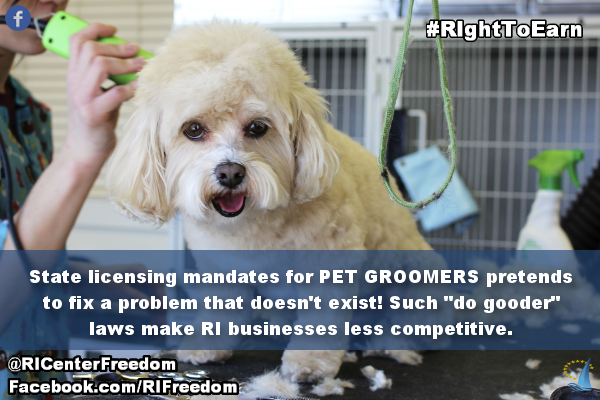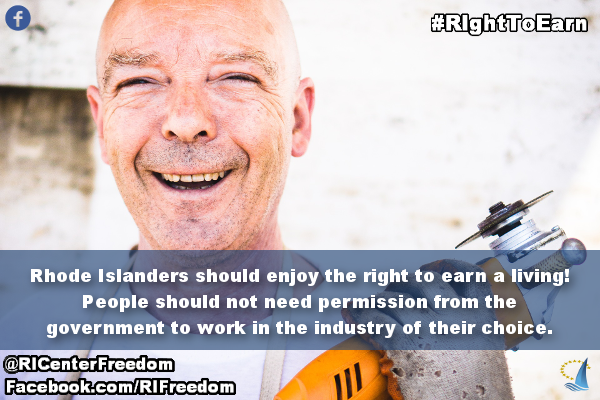RIght To Earn: Licensing Reform For R.I.
Improving RI’s bottom-10 regulatory climate by repealing occupational licensing mandates: Means I Have The Freedom To Fulfill Personal Dreams & Goals Gives me the right to earn a living in the profession of my choice Lets my family have multiple options to achieve self-sufficiency Saves time & money not having to overcome regulations Lets Me Live My Own Life More time, more money, and more opportunities Levels the playing field Helps low income-families the most Rhode Islanders dream, too!
Written Testimony for H7892 Small Business Retail License Omnibus Bill
Speaker Mattiello Supports Regulatory Reform in Opening Remarks
Outrageous Union Official Response!
R.I.’s excessive regulations STRANGLE opportunity
Oversight Chairwoman On Licensing: “This has to be the year for results.”
Wisconsin study shows no correlation between licensing and safety
Click The Tabs Below For More Videos:
Cool Images:
Question: WHAT to do and WHY?
Answer: MORE & BETTER. The Center recommends that if significant occupational licensing and regulatory reforms are enacted; more people will be free to engage in more and better jobs, more and better incomes will be earned, more families will be culturally stronger and will remain in tact, more and better businesses will expand or be established, more prosperity will be shared by more Rhode Islanders, and more working people will naturally give our state a better and more stable tax base.
Rhode Islanders Dream Too!
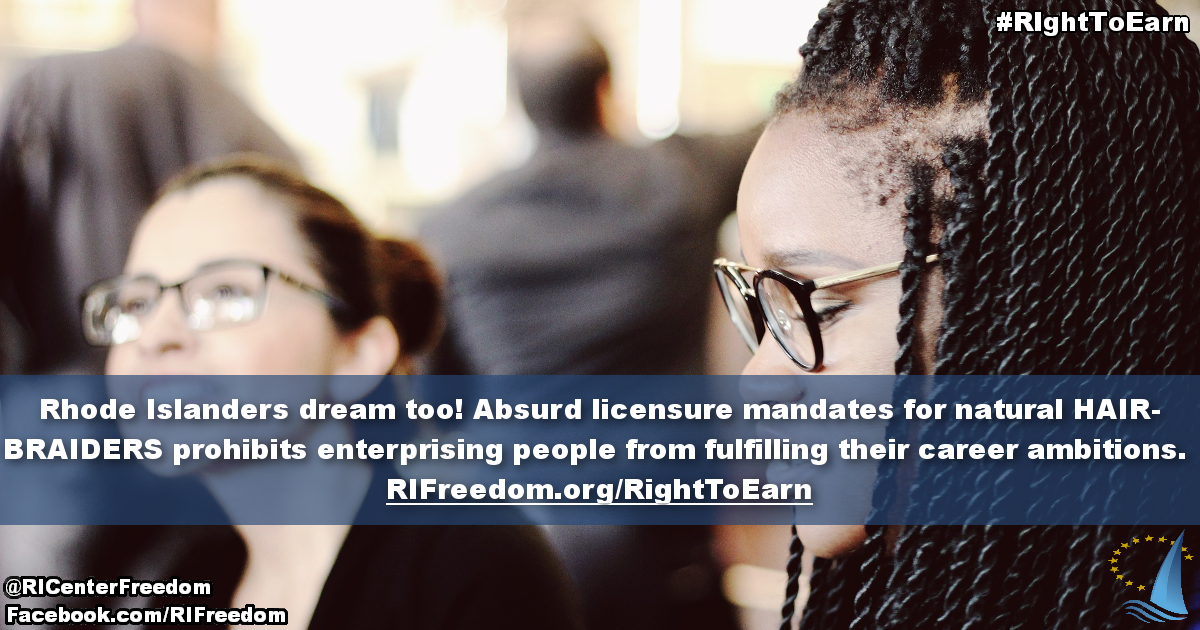
"Do Gooder" Laws Make RI Less Business Friendly
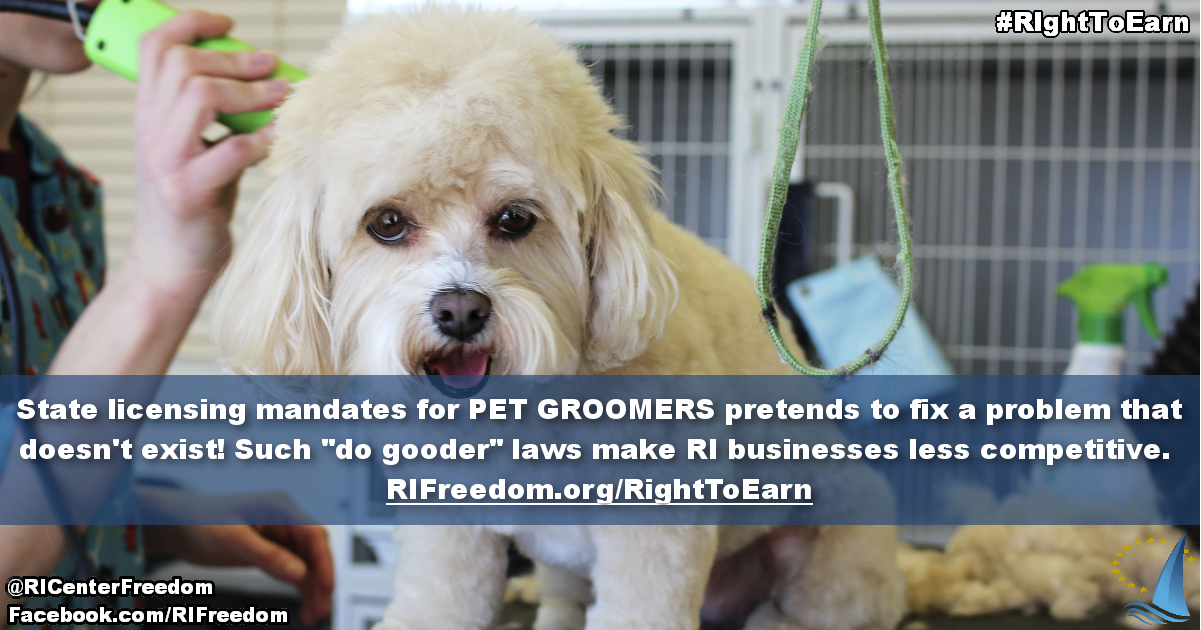
Rhode Islanders Should Enjoy The Right To Earn A Living!
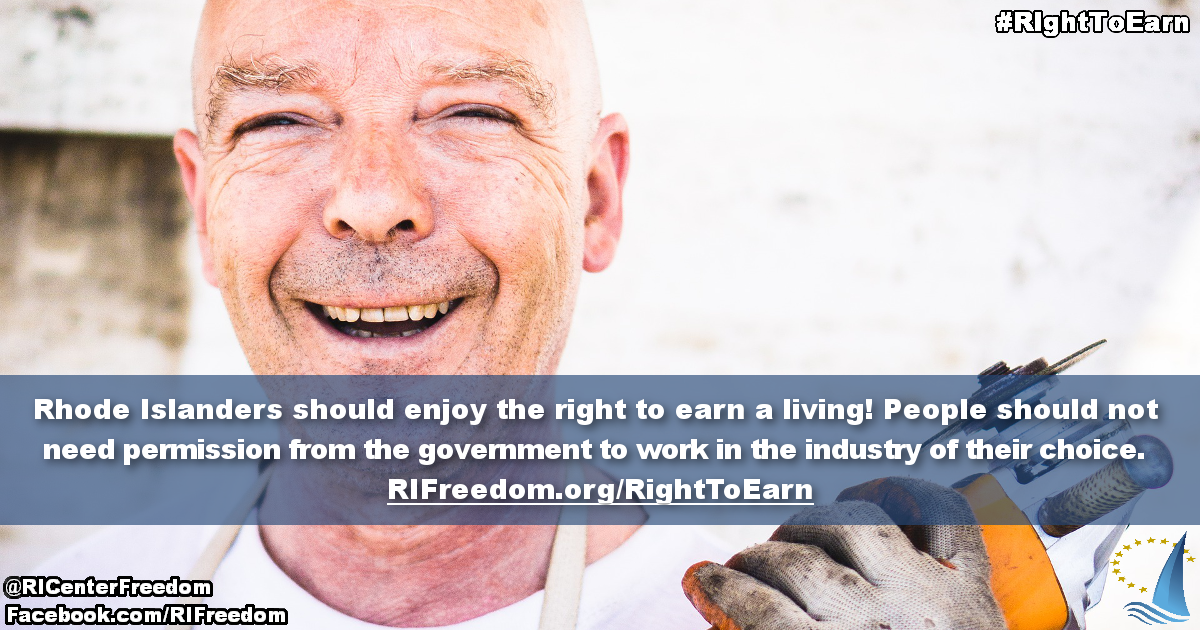
Rhode Islanders dream, too! All should have right to earn a living.
The goal of an effective regulatory strategy should be to ensure that occupational licensing is no more burdensome than needed to address present, significant and substantiated harm. Under a “light touch” approach, businesses are freer to develop and produce jobs. Bad actors will either be naturally forced out of the free market, or can be fined, censured, and criminally prosecuted under the existing and lighter regulatory framework. Only when, and if, systematic and documented abuses occur should appropriate regulations be considered. Instead of our state’s current harsh approach, the people of Rhode Island should have the right to earn a living.
Rhode Island licenses 72 of 102 occupations studied by the Institute for Justice, far more than most states. Such burdensome licensing mandates hurt lower-income families most and harm economic growth. The workforce of the future will little resemble that of our parents. An approach that openly welcomes the emerging “shared” and “gig” economies, as opposed to a tax and regulation approach, could make an immediate positive impact. If Rhode Island wants to attract millennials and other mobile workers as a vital portion of its future workforce, it must implement major reforms to its current occupational licensing regime, so as to make our state a more opportunity-rich place to call home.


